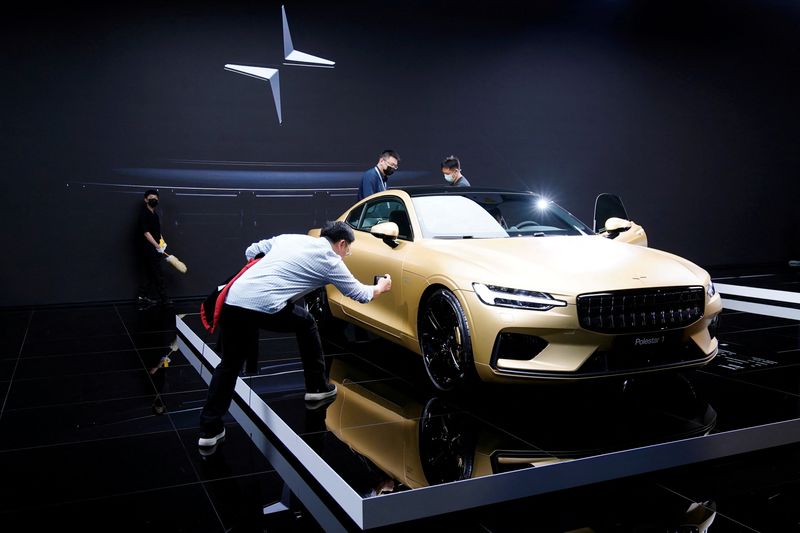SHANGHAI (Reuters) – China’s carmakers are ramping up exports of hybrid cars to Europe and planning more models for the key market, exposing the limits of the European Union’s electric car tariff scheme.
The bloc’s latest tariffs on electric cars to protect its auto industry from a flood of cheap Chinese imports do not apply to hybrids. This could lead to major brands such as leading Chinese electric car maker BYD continuing to expand in the region, analysts said.
Some manufacturers are also moving production and assembly to Europe to reduce costs around tariffs.
“The increase is due to Chinese OEMs switching to PHEVs (plug-in hybrids) as a way to circumvent new EU tariffs on BEV (battery electric vehicles) imports from China,” said Murtuza Ali, an analyst at Counterpoint Research.
He expects China’s hybrid exports to Europe to grow 20% this year and even faster next year.
EU tariffs of up to 45.3% on imports of Chinese electric cars came into force at the end of October to counter what the European Commission says are unfair subsidies that have helped China create spare manufacturing capacity of 3 million electric cars a year, double the size of the EU market .
Anti-subsidy investigations into imports of Chinese electric cars, which began in October 2023, and a slowdown in China’s auto sales due to the economic downturn have prompted some automakers to shift their European strategy to focus more on hybrid exports, data showed.
Hybrid cars, which run on a combination of gasoline and electricity, are gaining in popularity as buyers see them as an affordable compromise between combustion engines and all-electric vehicles.
Hybrid car exports to Europe more than tripled to 65,800 units from July to October compared to the same period a year earlier, reversing a trend of falling sales through the start of this year and into 2023, according to data from the China Automobile Association.
That helped exports of plug-in hybrids and conventional hybrids accounted for 18% of China’s total car sales to Europe in the third quarter, doubling from 9% in the first quarter. However, the share of electric vehicle deliveries fell to 58% from 62% over the same period.
The trend is likely to gain momentum.
China, which overtook Japan as the world’s biggest auto exporter last year thanks to its dominance in electric vehicles, is ramping up its export trend to cope with excess capacity at home, according to analysts.
Given the 100% tariffs on Chinese-made electric vehicles in the United States and Canada, Europe is also one of the most obvious selling points for Chinese automakers.
The European Commission did not immediately respond to a request for comment on the growth in imports of hybrids from China.





